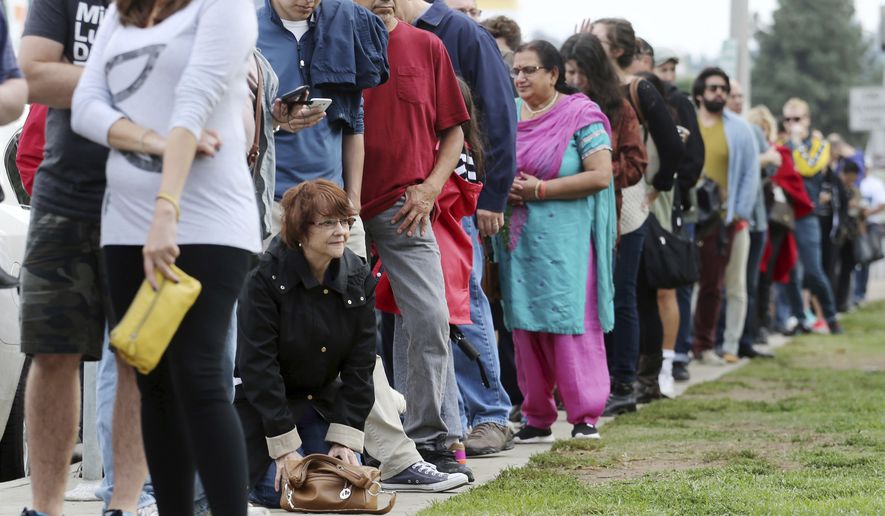OPINION:
Hillary Clinton wants her supporters, shell-shocked as they may be, to vote early this week. She knows what’s in the new batch of emails — if 650,000 emails can be called a mere “batch” — and she knows that this week is not likely to be better than last week.
She has been loudly demanding that James Comey, the director of the FBI, release the newly discovered emails that required him to reopen his investigation of her emails, and she knows that’s a safe strategy because the chances of his doing that are somewhere between zero and none. Anyone who watches the detective dramas on television knows that the cops don’t conduct their investigations in public. The correct order of criminal investigations is evidence first, then verdict. She’s getting a little help from the Republicans who have joined the chorus of “release the evidence now,” whether from further polishing of their halos or from wanting to sound reasonable in pursuit of nonpartisan justice.
But reopening the investigation is an eloquent argument against the folly of early voting, which is clearly against the law that established “the first Tuesday after the first Monday in November” as the only Election Day. Nothing could be clearer than that, but if the law is inconvenient we should pay it no mind. What we have now is not an Election Day, but an Election Season. It’s pick your own Election Day. Absentee voting, properly regulated, can be excused, though it has traditionally been used by the unscrupulous to abuse the system. Thirty-two states now enable voters to choose an Election Day to suit their convenience.
In 2012, more than a third of those who voted for president did so early. This year voters in Wisconsin could vote as early as September 19, when the campaign was just getting underway, and Wyoming, Vermont, New Jersey, Minnesota, Idaho and Iowa set election days from September 24. Many voted before the first presidential debate, ignorant of much of the information about the candidates.
The “first Tuesday after the first Monday in November” was set by Congress as federal Election Day in 1845. The law has never been changed, but the law, like the Constitution, does not seem to matter so much any more. The Election Season, like the Christmas season, is flexible, and subject to the whims of personal convenience.
Before the 2014 elections, two law professors at Northwestern University, Eugene Kontorovich and John McGinnis, studied early voting and concluded that “early voting threatens the basic nature of citizen choice in democratic republican government. In elections, candidates make competing appeals to the people and provide them with the information necessary to make a choice . It is important to preserve the space of a general election campaign — from the early rallies to the last debates in October — to allow voters to think through, together, the serious issues that face the nation.”
Those who cast their ballots in September and October missed that chance. Early voting should be reconsidered after this year’s elections. What’s next? Revised voting? There are no do-overs. Not yet. The idea that convenience, even if it makes a mockery of the organization of democracy, should trump the law is nothing less than disrespect for the law.




Please read our comment policy before commenting.